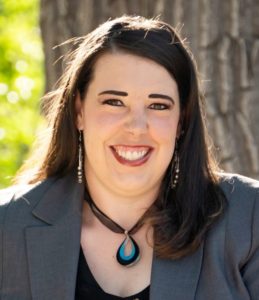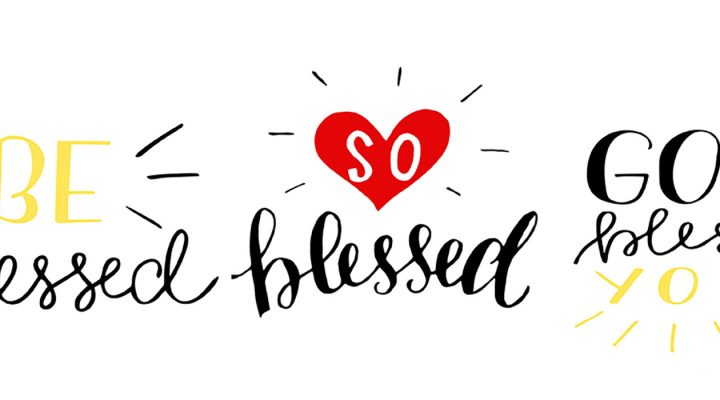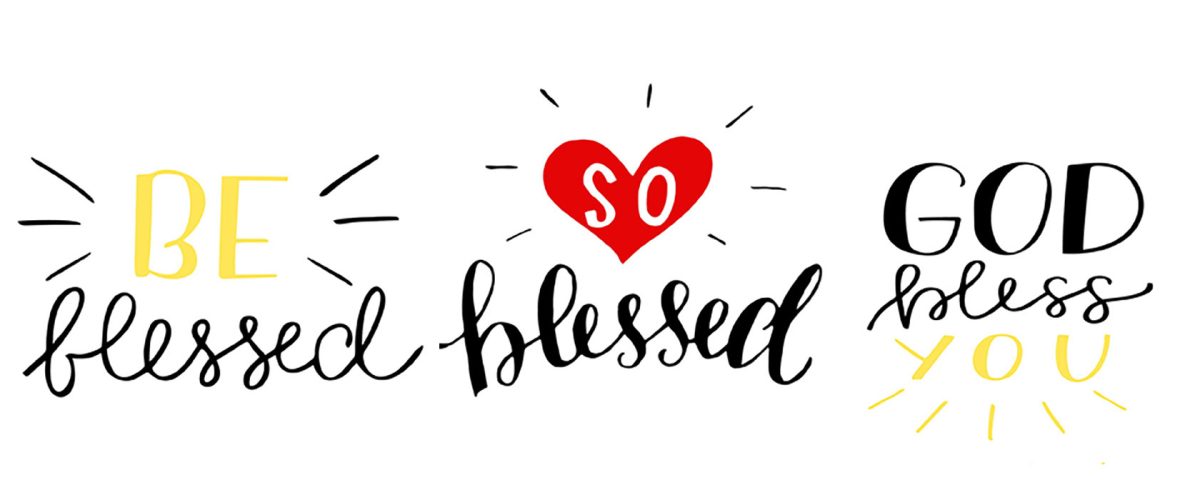This is the fourth in a November series produced by BNG on what it means to be “blessed,” a word so flippantly used that it often loses meaning.
For those of us who grew up evangelical, the term “blessing” comes with some baggage. A once commonly used term to convey positive intentions is now tainted with religious trauma and residual feelings of self-denial and suffocation for the benefit of others.
From my earliest recollections, I was taught to put others first — to deny my own wants, feelings or desires for the sake of those around me. A heavily referenced text when it comes to the topic, Romans 12 encourages us to make our bodies a “living sacrifice,” to “not think more highly of yourself than you ought” and to “not be conformed to this world” but “honor one another above yourself.” These ideas sculpted me from my youth. I was expected to be a good role model for my peers and lead by example. I was taught to suppress what I felt or wanted, always putting myself last.

Amber Cantorna
“Being a blessing” was an assumed responsibility for everything I did growing up. Whether I was performing music at a retirement home, visiting relatives out of state or hanging out with my peers, it was expected that I have a good attitude and show up with a smile.
“I want you to go with the mindset that you’re going to be a blessing,” my mom would say before any event, trip or get together. What that really meant was to be on my best behavior and help out — the term “blessing” just gave it the Christian trademark.
But it ingrained self-sacrifice into my psyche. The denial of not just my own wants, but also my own needs. Always smile. Always be positive. Always do what the other person prefers. Don’t have an opinion. Don’t want. Don’t need. Don’t desire. Squish. Deny. Suppress.
This has come with long-term ramifications and created a ripple effect over time that led to a lack of healthy boundaries in relationships, an overextension of “doing for others,” a lack of valuing my own self-worth, and at times feeling used and taken advantage of. It stunted my emotional growth, made it hard to vocalize what I was feeling and promoted toxic positivity.
“Undoing harmful patterns of self-sacrifice takes intentional practice and effort.”
To this day, I’m still working hard to rewire old thought patterns that tell me I’m not allowed to ask for what I need or take up space in a relationship. It’s challenging because my mental programming still tells me that I’m being selfish. Undoing harmful patterns of self-sacrifice takes intentional practice and effort.
Even when I came out as gay in 2012, my mother said to me, “How dare you do something so selfish and do what makes you happy without thinking about how this affects us!”
Of course, one doesn’t choose to be gay, and how this would affect my family and my relationship with them was all I thought about for months leading up to my coming out. But even then — even with something as monumental as my sexuality and mental health on the line — they pressured me to hide it, fix it and suppress it for the sake of appearances (and my soul being damned to hell, of course).
When expressing to them how suffocated and miserable I’d felt for so long, my father said, “Well, I’d rather you be miserable in this life than miserable in the next.”
And when their passive aggressive behavior of ostracizing me from the family led me to the brink of suicide, my mother said she hoped I would never do something so selfish and that it was my own fault for feeling the way I did because “those are the consequences of sin.”
“When their passive aggressive behavior of ostracizing me from the family led me to the brink of suicide, my mother said she hoped I would never do something so selfish.”
I realize this is an extreme example of how evangelical tenants of the Christian faith can be taken to dangerous lengths that do great harm, but I believe it is important to pause and take inventory of the ways in which something like “blessing others” — something that seems like it could only have positive outcomes — can actually be very detrimental. It’s critical that we reflect on why we believe what we believe, and if those beliefs are truly “blessing” those around us (without hidden caveats, expectations or strings) or if they are creating a hierarchy of performance or perhaps even a competition for who can win the Best Christian Award.
If we know anything about Jesus, it’s that he valued humility. He spent his time quietly making life better for other people, without notoriety or praise or accolades. He also rested, spent time outside with friends and managed self-care.
What if we did the same?
What if we traded self-sacrifice for self-discovery?
Suppression for communication and boundaries?
Self-denial for self-care?
What if modeling these things is the very essence of being a blessing, because what we all need the most in this capitalistic, individualized society is people who will model for us what it means to slow down, to breathe, to make time for silence and gratitude, to care not only for others, but also for ourselves?
Perhaps managing self-care is what saves us from ourselves.
Perhaps it is the way of Jesus.
Perhaps it is the greatest blessing of all.
Amber Cantorna grew up in the deeply conservative evangelical culture of Focus on the Family and now advocates for equality everywhere. She is a national speaker, the author of Refocusing My Family and Unashamed: A Coming Out Guide for LGBTQ Christians, and host of the Unashamed Book Club. Follow her on Facebook, Twitter, and Instagram and learn more about her work at AmberCantorna.com.
Other articles in this series:
‘We’re so blessed!’ | Opinion by Mark Wingfield
Blessing is not about good fortune; it is akin to God’s love | Opinion by Ann Bell Worley
Original blessing, the #blessed hashtag, and what it really means to be blessed | Opinion by Andrew Daugherty


